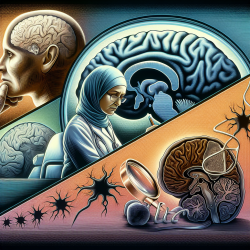The topic of early sexual debut among adolescents has been extensively researched due to its potential impact on psychosocial outcomes. A recent longitudinal study focusing on Dutch adolescents provides new insights that challenge some traditional views. This blog post will explore these findings and discuss how practitioners can use this information to improve their practice or encourage further research.
Key Findings from the Study
The study examined 470 Dutch adolescents over time, focusing on the relationship between early sexual initiation and various psychosocial factors such as attachment, self-concept, internalizing problems, and externalizing problems. Here are some of the key findings:
- Attachment: For male adolescents, a strong attachment to their mothers was associated with a lower likelihood of early sexual initiation. However, this was not a significant predictor for female adolescents.
- Self-Concept: Female adolescents who initiated sexual activity early showed an increase in self-concept over time compared to their non-initiating peers.
- Externalizing Problems: Both male and female early initiators exhibited higher levels of rule-breaking and aggressive behaviors initially. However, these behaviors did not significantly change over time.
- Cultural Context: The study highlights the importance of considering cultural contexts when examining adolescent sexuality. In the Netherlands, adolescent sexuality is viewed as a normal part of development rather than a problem behavior.
Implications for Practitioners
The findings from this study offer several implications for practitioners working with adolescents:
- Cultural Sensitivity: Practitioners should be aware of the cultural context when addressing adolescent sexuality. Understanding societal norms and beliefs can help tailor interventions that are culturally sensitive and effective.
- Focus on Attachment: Strengthening parental attachment, particularly maternal attachment for boys, could be a valuable strategy in delaying early sexual initiation.
- Encourage Positive Self-Concept: Programs that enhance self-concept may support healthy adolescent development and mitigate some negative behaviors associated with early sexual initiation.
- Monitor Behavioral Changes: While externalizing behaviors may not significantly change post-initiation, continuous monitoring can help identify any emerging issues that require intervention.
The Need for Further Research
This study underscores the need for further research into the nuanced relationship between early sexual debut and psychosocial outcomes. Future studies should consider:
- Diverse Populations: Expanding research to include different cultural contexts can provide a more comprehensive understanding of adolescent sexuality globally.
- Longitudinal Designs: Continued use of longitudinal designs will help clarify how psychosocial factors evolve before and after sexual initiation.
- Sociocultural Influences: Investigating the broader sociocultural influences on adolescent development could reveal protective factors that promote healthy outcomes.
The insights gained from this study are invaluable for practitioners aiming to support adolescents through their developmental journey. By integrating these findings into practice and advocating for further research, we can better address the complexities of adolescent sexuality and its impact on psychosocial health.










